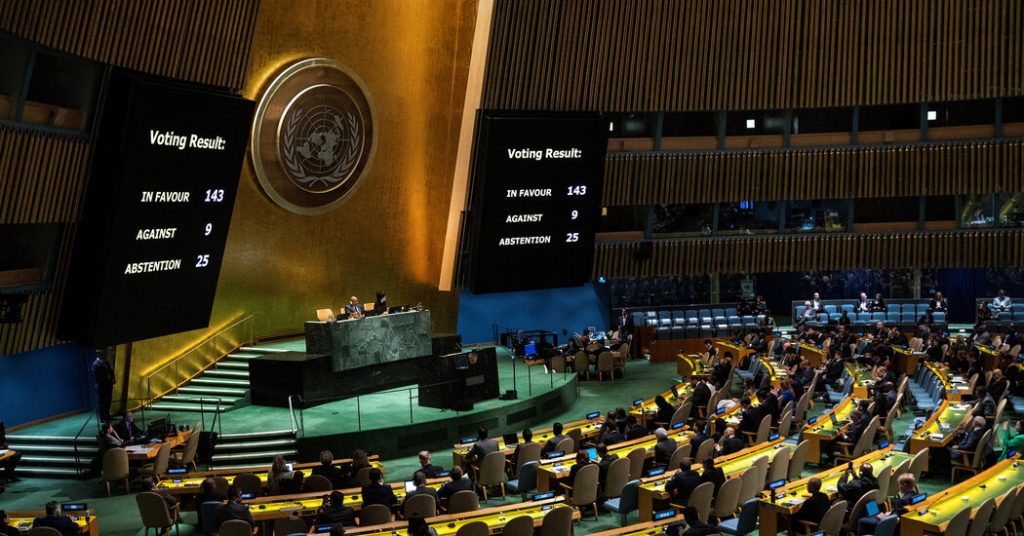Turkey has suspended trade with Israel and the world’s top court is considering whether Israeli leaders have committed genocide. Protests are taking place in cities and campuses worldwide. Ireland and Spain are planning to recognize Palestine as a state by the end of the month. The United States, Israel’s long-time ally, is now threatening to withhold arms shipments for the first time since the war began. After much international support for Israel following a Hamas-led attack, the country now finds itself increasingly isolated. The war has killed more than 34,000 Palestinians and left Gaza on the brink of famine, erasing any goodwill Israel had earned on October 7.
Of particular concern to Israel is the strained relationship with the United States. President Biden, under pressure in an election year, has become more vocal in demanding that Israel limit civilian casualties and improve humanitarian aid access. The US has decided to withhold the delivery of high-payload bombs, with Biden suggesting that more weapons shipments may be paused. The United Nations General Assembly recently backed Palestine’s bid for UN membership, showing a shift in global sentiment against Israel. Israeli athletes and academics have also faced boycotts and protests, leaving many Israelis shocked and confused.
Israelis are questioning why the focus is not on Israeli victims and why there is not as much outrage over other global human rights issues. Many Israelis see the growing isolation as a result of unchecked antisemitism, American politics, and selective virtue signaling. The country’s isolation also reflects international frustrations with how Israel has conducted the war, its restrictions on food aid, and a narrower focus on the Israeli public’s suffering. While Israel has faced criticism in the past, the current backlash is more severe, with real consequences on security and economics.
The conflict between Israel and Hamas began on October 7, drawing mostly international solidarity. However, criticism started to mount as Israeli forces bombed Gaza, resulting in civilian casualties. The Biden administration urged Israel to protect civilians and provide aid corridors. Israel’s continued bombing, coupled with its restrictive policies, led to a decline in support globally. As humanitarian concerns grew and with the war unpopular in the US and Europe, Israel faced increasing opposition and calls for accountability.
President Erdogan of Turkey denounced Israel’s actions as sentencing Palestinians to death and announced a suspension of trade. Many analysts believe Israel has failed morally and politically by ignoring humanitarian imperatives and lacking a peace-focused strategy. As Israel grapples with international criticism, the country’s complex reality, ongoing security threats, and historical context are often overlooked. Israelis feel vilified and misunderstood, facing accusations of being bullies while dealing with immense loss and heartbreak.
While Israel is not completely isolated, there are concerns about dwindling US support. Many believe that Israel’s current government lacks understanding of the country’s standing in the world and risks further alienation. Despite ongoing US support for defensive weapons, the growing agitation with Israel among young people and the international community presents a significant challenge. As Israel navigates its relationship with the US and the changing global landscape, the long-term implications of its actions and policies remain uncertain.


